|
Trailer for the film here. Image courtesy of Fox Searchlight.
We've all seen children walk out of a movie convinced it's their new favorite of all time. You sense their heady excitement as they rhapsodize their favorite scenes and wallow in the glory of newfound exhilaration. Then, a week later, they'll have forgotten all about it. I tend to hesitate before canonizing a new film, because I don't want to confuse such euphoria with a thoughtful appraisal of quality. Usually, only time separates the grain from the chaff. Those who went around ten years ago saying Lord of the Rings were the best films ever made are probably biting their tongues now, just as the Academy doesn't like to trumpet that it voted How Green Was My Valley over Citizen Kane for Best Picture 1941. But there have been a few times when, backed up by all your film knowledge, and by the undeniability of what you're looking at, you know this is a film which will be talked about in twenty years' time. Many great films are being made now, but there's a different feeling between watching those and watching a masterpiece like the great American films of the seventies or Western European films of the sixties. It's rare, but sometimes that feeling will surface while watching a new movie: you're sitting in the theatre, and you feel awed by a presence, an entity that is slightly beyond your understanding, and you know you're witnessing something particularly special. It takes some serious confidence (maybe hubris is more accurate) as a critic to place a new release alongside the sacred cows. Remember when, in 1962, L'Avventura was voted by Sight and Sound as one of the ten best films of all time, only two years after it was made? And how right they turned out to be. Can you imagine a serious publication doing that now? I'm here to argue that Alejandro Gonzalez Inarritu's Birdman is just such a piece. It's the new 8 1/2. It is a crowning achievement not just of the year, but of this quarter-century. I think it's an easy argument to make. Birdman follows a washed-up actor (Michael Keaton) whose fading career was built on playing a superhero (the birdman of the title) over and over again. Now, seeking to restore some credibility to his name, he's mounting a Broadway play based on a Raymond Carver story. He's plagued by self-doubt, a lead actor who threatens to destroy the production through sheer force of attitude, a critic determined to end the play's run, and a daughter who doesn't believe in him. And every now and then, he floats in the air, or causes things to move by themselves. Also starring are Ed Norton, Naomi Watts, Zach Galafianakis, Emma Stone, Andrea Riseborough, Amy Ryan, and others. What's so great about that story, you would do well to ask. I'll respond by quoting Roger Ebert: it's not what the movie's about, it's how it's about it. It's all impeccably acted and written, but when we're talking about film of the decade, you expect that. Two things elevate it. Birdman taps into something universal. It's not really about the "inside baseball" of actors and the stage and the New York theatre scene, although it traffics realistically in that milieu. It's about the universal human urge to be loved, and it's about a man who, like almost all of us, confuses love with admiration. He yearns for the affirmation of respect, and his craving for that vastly supercedes the love he could have in his life. He wants to prove his own self-worth to himself, but his desires are such that he needs the involvement and confirmation from others... and in that path danger lies. Milan Kundera wrote that we all wish to "leave a mark," as it were, to defy mortality in our own small way by offering a contribution that will outlast our physical lives. For many people, this means having children. For others, it means making art. Some do both, but in any event, there is the need to create, to alter the course of the stream a little, prove that at one time, you really existed. Riggan Thomson (the Keaton character) feels this need in desperation, and the concentrated form of his trying to realize it with this one play allows for much rich dramatic exploration. Inarritu considers these dilemmas in a way that feels immediate. One feels very little separation from the screen and ourselves; he's captured the zeitgeist (allow me that overused phrase just once, as it's entirely justified here) on a level that is uncanny. The film explores so many aspects of how we live today– the trappings, the thought patterns, the change, the shifts in language and perspective– and does so with a weary smile, a tone that manages to be both existential and comedic. I'm struggling with the words here. The film, with images and sounds, conveys what I cannot with mere words. If I could capture it all, well, the film wouldn't be so special. There is the moment between Ed Norton and Emma Stone on the rooftop; Emma Stone's diatribe against her dad; the indelible conversation between Keaton and the theatre critic, and the one with his ex-wife. Inarritu has spoken of the film having much to do with his turning fifty, and the resulting rethinking and reorientation of his priorities. He also speaks of wanting to confront these issues not with cynicism, but with humor. It's worth quoting a short interview passage at length: "I was particularly interested in — two things. One, never be ironic or cynical. I'm so fucking tired of the irony and cynicism that rules the fucking culture and world now. Everything has to be cool. Everything has to be detached emotionally. Everything has to be a little bit too smart. Nothing is really truthful or honest or emotional. There's always this ironic take on everything. And I didn't really want to be a smartass laughing about these characters or pointing or preaching at the industry, because everyone knows where we are. I was always careful that everything would come from the point of view of Riggan, not me commenting on it. Because there were a lot of comments I could have done, but we had to be restrained, because that would have been the "smartass writer." So everything comes from the truth of Michael. With the theater critic, we didn't want to portray bad or good. From the point of view of the critic, she's absolutely right. From the point of view of Riggan, he's absolutely right." This lack of irony in the film's perspective seems to be a common element I'm noticing in films being made now that I think will stand the test of time. "We've reached the peak of fake," a friend recently told me, and it will be outdated in the years to come like we wouldn't believe. In the way that realism and naturalistic acting will never go out of style, truth and sincerity have a currency that cuts through the passing fads. Variety's Peter Debruge writes that like The Great Beauty, Birdman "never allow[s] its justifiable cynicism to drown out what idealism remains." How refreshing. This, as well as the non-judging warmth Inarritu has for his imperfect characters, have a palpable effect on the film's tone, and make it quite unlike many other movies. Regular readers will know how much I delight in these two perspectives. The other element that elevates Birdman is Inarritu's decision to have the entire film appear to be shot in a single, continuous take. I cannot stress what a big deal this is. Birdman isn't actually shot in a single take– like Alfred Hitchcock's Rope, there are a few spots where the camera slides behind someone's back or somesuch, allowing for an invisible cut– but that's not the point. The point is that (save for one scene) we never see the camera cut from one image to another image. We've been watching a century's worth of films that do this, and have intuitively learned the grammar by which films communicate. Editing is what allows film to be its own art form. All its other elements– acting, photography, writing, music, sets– those all stem from other disciplines. Only in film can you juxtapose moving images, and achieve the magic of, by placing two images after each other, cause a third element (a thought in the viewer's head) to manifest. By watching hundreds of films that do this, we've learned the language of cinema whether we know it or not, in much the same way we've learned English. Birdman has none of that. To watch amounts to experiencing a new art form, much like filmmaking but strangely different. The camera glides down hallways and around people with dazzling high-wire grace. There is the visual idea that life flows together. It's not a fragmentation of time and space, but an ongoing mobius strip of connected moments. We subconsciously know that a cut can hide truth; imagine a scene of two people at a table, with the camera cutting between them, showing first one person, than the other. Because of that cutting, we know there's a possibility the two were never actually seated at the table together. Now imagine the camera not cutting, but panning back and forth between the two people– you know now, with confidence, that the two people are really there together, at the same time. The continuous, unbroken shot is one of the last hallmarks of truth in cinema. We know the monsters are fake; we know the backgrounds might be computer-animated; but a moving, unbroken shot is very hard to fabricate. Because of this, Birdman feels startlingly real. Aside from the effect the single take has on us (and the aesthetic joy of watching how and where it will drift to next), there is also the effect it has on the film's production. Film scholar Kristin Thomson once wrote of her love of animated movies. She began to notice many of her favorite films at years' end were animated, and she concluded that it wasn't because they were animated, but because of how good they were. She theorized this was because unlike live-action filmmaking, animation leaves absolutely no room for improvisation or quick (or lazy) decisions. Every single thing must be meticulously planned and considered before the money is invested on animating it. All this thought, she argued, tended to result in superior quality. The same can be said of Birdman. Because the film isn't a series of a few hundred shots, but perhaps just five or so, it can't be "edited." Inarritu speaks of feeling "totally naked" in the making of it– you couldn't make a single mistake on set, or the entire elaborate shot would have to be redone. Everything had to be thought about and planned out. He couldn't spend six months in the editing room intellectualizing everything and rethinking the film and fixing mistakes, no; all of that thought had to be done beforehand, and synthesized into the moment of shooting. Rather than just shooting a handful of standard setups and figuring it out later, where the camera is at any given time was given tremendous consideration– what does it mean for both characters to be in the frame right now? Should he be in the corner, or in the center, in relation to whom? Whose point of view is this scene to be told from? There you have it. I won't wrap up this review with a string of superlatives. Instead I'll repeat a line from the film, in which Keaton takes the theatre critic to task for her reviews, and so succinctly states everything wrong with film criticism today: "there's nothing in here about technique, or structure, or intention...it's just a bunch of opinions backed up by a bunch of other comparisons!" I hope I have offered a review that does the former, and offers some insight and analysis into something you might really love. Give it a chance.
2 Comments
The older gent who'd asked earlier about Third and Marion– the ferry terminal– sidles up as we approach his stop. He's in beige slacks and a golf hat.
"How d'you like living on Bremerton?" "Well, it's cheaper!" he replies with a smile. "No fair, I'm a little jealous!" "It's still up and coming. There's a lot of blue collar folk, sailors," "Right up my alley!" I say, tugging on my uniform collar, which really is blue. He loves this, laughing richly. "You haven't been doing this very long, have you?" "You know, it's been seven years." "Whoa. Wow. They obviously sent you to finishing school!" We're both giggling. "Something like that!" "Seven years, and you still...." "I still love it, by some act of magic. Fingers crossed!" I still wonder if it had gone differently had I been a little more present when they got on. These two men were the last two to rush aboard at Fourth and Pike, just in time now, right as the light turned green.
The first man was a squat and burly older figure with an ex-football frame, that familiar silhouette of muscular shapes gone plump. Shorts and a torn T-shirt, fifties, white. He asked if I go to Broadway. Yes, I answered distractedly, checking around to see if it was still possible to take the light. Just behind him the second man boarded, a tall, thin fellow in his sixties, dressed in a neutral beige jacket, khakis and walking shoes that curiously didn't identify any class or status affiliation. He may have been homeless or a millionaire, European or American. He nodded as I said, "glad you made it." I closed the doors and said into the mic, "okay, we're gonna take this light here, hang on," smoothly accelerating away with six seconds left. Plenty of time. We continued up Pike without incident. Ex-football man sat up front watching the proceedings, grunting with satisfaction as I dove into the bus lane to skirt traffic. I thought about engaging him but didn't, enjoying a moment of quiet time. Maybe I should have. Beige fellow was seated next to him, but they didn't speak with each other and were clearly strangers. At Bellevue and Pine, we rolled to a gentle stop for the red light. Football stood and came up to me, saying, "hey, can I get out right here? I kinda wanta go to that store, what is it, Benson's, back there on the corner." "You know, I've actually gotten in trouble for doin' that, so I gotta say no, but there's a stop around the corner." "But I wanna go to the store." "Yeah, there's a stop just up the block here. Didn't you say you wanted to go to Broadway?" "I know. I wanna go right back there." The light is staying red, and staying red, and staying red. "I can let you out around the corner here, we got a stop just up the block." "You can't let me off right here?" "We're almost there." "How about if I go out the emergency window?" He points at the first door side window that has a red emergency lever, which happens to be directly behind those first side-facing seats, where the neutral beige man is sitting. "You can do that," I say, not expecting him to. He stalks his squat frame over to the window and pulls down the red lever, pushing out the window, preparing to stick his leg through, but– there's one small problem. The beige guy is in the way, sitting right in front of him. He's been sitting there, oblivious to the above conversation, and now he's confused: there's a burly guy with a handlebar mustache standing right in front of his face, doing– what? Sticking his leg over my shoulder– "What? What the fuck are you DOING?!" he screams. "Outta my way," mutters Football. "STAY THE FUCK OFFA ME!" Neutral Beige lifts his legs to his chest and shoves them with all his might into Football's stomach. Football is propulsively thrown backwards, crash-landing into the wheelwell right behind me. A girl sitting in the midst of all this stands up, disentangling herself, and walks to the back. I imagine she's thinking, since when did fights happen at the front of the bus? The burly man lunges forward– "STAY THE FUCK AWAY FROM ME," from the the Beige guy, hollering at top volume– lunges forward and grabs the old man's legs and yanks backward, almost appearing to be trying to pull his legs apart from his body. Now the old man's waist and legs are on the floor with his top half following quickly behind. He is on the floor but not completely, his neck still pinned on the seat bottom, and Mr. Football is collapsing on top of him, going at it with his fist. A right into the man's face or left shoulder, hard to tell, somebody's knee hitting the floor. Neutral Beige flounders with his arms, blocking, rotating rather ably out from underneath, shouting in stammers. "Get the, fuck off...fucking asshole...." We're moving into the language of grunts. All this has been less than ten seconds. That red light is still red. I open the front door, saying loudly, "guys, guys, guys, okay," and Football stands, extricating himself from this mysteriously capable older fellow and running into things on his way out the door, howling in tongues, throwing scraps of paper at me, trying to get back inside but I'm closing the doors, yes just in time, thank you, and the light is mercifully now turning green. I roll slowly away. He's out there still, like a fairy-tale monster who just won't go away, still chasing after us, smashing his fist into the front side window, shattering it into a thousand spiderwebs. So much energy. Where does it come from? Why do fights always happen over the most picayune matters? Eventually, of course, he's gone. Neutral Beige is gathering himself, talking to the others around him. I ask, "how ya feelin'? Can I call the police for ya, if you want to make a statement...?" "Nah, it's up to you." "You sure?" "Oh yeah, I'm fine." I looked at him. He was sitting there, much like before the incident, but there was something new in this scene. His being was completely energized. He exhaled with a relief that couldn't fully hide his excitement. "You feel alright?" "Oh, yeah, it's nothing." Actually, he felt great. You could smell it. Exhilaration was coursing through his veins, and he was no longer old or young or tall or whatever; he was the original version of himself, the invincible youth we all remember being, and his quality had just been proven to himself in no uncertain terms. Wouldn't you feel great? The worst thing you could imagine, the worst-possible scenario had taken place on his bus ride home. He was attacked by a younger, bigger, stronger man without provocation, and he had held his own with no assistance. I've still got it, you think to yourself, and everything is in its right place. It's not something you discuss with others. He just sat there, trying not to smile. "I hope you have a great rest of the evening," I told him when he got off. "Oh, I will," he said, allowing himself a small grin, the vitality beaming through. I think he was the happiest person on the bus. I'm walking through a group of men on my way back from the "comfort station." Comfort Stations are what we Metro folk call bathrooms. Not all routes have bathrooms at the terminals, and I do my best to only pick those routes which do. You can imagine what a relief– what a comfort, if you'll allow me– they are on the long nights.
On the sidewalk tonight in Rainier Beach, just outside the Comfort Station and between the bus and myself, is a cluster of three men, ranging from perhaps thirty-five to fifty-five. It's dark out, they're all wearing black, their skin is dark, their eyes are dark– but I can still see the glint of light in their pupils. How is it, that it's never too dim to see that spark? Two of them are East Africans, and the third is African-American. Although these two ethnicities tend not to intermingle, this trio seems to be getting along just fine. The third man, the American, is dressed in a black cape and tights. After I greet them all he tells me in a tipsy voice how much I remind him of a TV personality he knows. "Look it up on your Google," he says, adjusting his cape. I recognize the Africans and we all shake hands. One of them is Dealer One, and the other is Elbee. In the way that politicians need to do a little gladhanding to get votes, I need to do a little acknowledging to keep up the decorum, and be able to go to and from my bus without worry. Kindness is stronger than a bulletproof vest. "Warriors, come out to play-ee-ay," the caped man is saying. I don't know how to respond except, "You watch a lotta movies! Movies and TV." "What?" "The Warriors, I remember that. 1987. Or was it 1979?" "Naw man, I've lived it. I've lived it. Seal Team Six. We went anywhere, over water, under water, didn't matter." "Respect. Thanks for serving." The important thing right now is stay on the good side of these fine fellows. "But we had a Black Hawk Down, man." The husky storytelling voice. "We couldn't get there fast enough. Couldn't get there, Mogadishu, Somalia. Black Hawk Down, man, the rotor blades spun out flat." "I remember. 1993." Superman nods. "Oh! Yes!" Says Dealer One, who's Somalian himself. By his tone I can see he remembers the event. "The rotor blades spun out flat," Superman says to Elbee, leering a bit into him. I'm thinking, that's not really a sentence that makes sense to a non-native English speaker. Does Elbee have any idea what this guy is saying? "Yeah. October," Elbee says. October 1993. "Yeah, October!" Somehow, a feeling of solidarity swept over us. We realized we all knew of the significant event Superman was discussing. Across the street in the Saar's supermarket parking lot, the Tchaikovsky tinned out from the loudspeakers. A Korean kid and three black guys...two Americans and two Africans...how ever you wanted to shake it, there were four people standing next to a garbage can on Rainier Avenue around midnight, nodding and smiling in a forgotten corner of our great city, accomplished in the the humble feat of understanding each other. As I walked away I thought, how lovely, that these men, ostensibly on opposing sides of the former conflict of which they speak, understand that they themselves are not countries but individuals, and have no cause to quarrel. The faces you see, glancingly, across the years, are living full and storied lives of their own. Nearly three years ago I wrote: A red-faced man in construction clothing steps on through the back door at Maynard, recognizing me, the driver way up there, and shoots me a big wave, which I enthusiastically return.
That was all I knew of him then. Some guy with a reddish face and a smile. Then, in November of 2012, he came up to the front of the bus. This is from November 26: 'I'm gonna be a father soon,' a Caucasian man tells me at Rainier and Brandon. He's young, tough, with sun-scarred skin, a lot of sharp edges and tattoos. But his voice is as gentle as can be. "Congratulations," I said at the time. Over a year later [Winter of 2013] I saw him on the 358, clear on the other side of the county, and I recognized him instantly. With him was his girl and a baby basket. "Heeyyyy, dude!" I say. He lights up. "Is this the new baby?" "Yeah!" he says, still the same odd amalgam of genial roughneck. He lifts up a blanket to show me the baby, who is cute, pudgy, and sleeping. He doesn't say too much else, but his happiness is palpable. You feel him growing into himself. Then, last night, a scattered group was boarding at Mount Baker Transit Center. "How's it goi– Heeeyyy! What's goin' on, dude!" It was him again. My what's goin' on was spoken slightly slower and with emphasis, as if to say, "it is you, and boy, has it been eons!" He returned a silent smile, closed but wide, which on his stoic face meant, "heeeeeyyyyy!" "Good to see you!" Bone-crushing handshake, one stroke, up and down. "How's your kid?" "Good. He's good. Two years old. He's big," "Nice," "And getting bigger. Birthday on the fifteenth of next month!" "That's so awesome! That's fantastic!" I wonder what that baby's up to right now, this minute. All this life, happening while I'm busy with my own. Wonder when I'll see him next. Image courtesy of 20th Century Fox.
There is a lot of discussion taking place regarding this film right now (trailer here). Here are my thoughts: If the American Dream is predicated on the search for achieving and plateauing out on a steady, static state– marriage, children, home ownership, the indefinitely extending job, and the rest– then David Fincher's Gone Girl is a meditation on the collapse of such structures in a world too complex for such simple stability, by forces outside the protagonists' understanding. On the surface, the story opens with Nick Dunne (Affleck) waking up on his five-year anniversary to discover his wife missing, and subsequently having the darndest time proving he didn't kill her. Although the plotting is intricate (please, please see it before your friends spoil the twists), Fincher has more in his sights than merely a competent genre exercise. This is his Scenes From a Marriage, and though it is not as painful or direct as Bergman's masterpiece, it probes the notion of marriage with a disciplined eye rarely seen in contemporary mainstream film work. He perfectly captures the "how did we get to this" trajectory of a downward-spiraling union, sketching quickly in broad but carefully observed strokes. More than one audience member may find themselves nodding in rueful understanding. How do we get to that mysterious and disappointing place of bringing out the worst in ourselves with those we love? How did we stray so far from the person we really did think we were? In the film we see and hear thoughts from both husband and wife, and the dual– shall I say dueling– perspectives are sobering. The concept of the unreliable narrator is taken to new extremes here, and this makes the viewpoints expressed even more thought-provoking. There is the truth of what happened and what didn't, and then there are the deeper truths that are not about who killed who, but rather with the gradual undoing of love and time, the narrowing of who we are, until finally we're trapped in a prison we willfully stepped in. More than once the notion is propagated that marriage is a state of living people take on for show, or to fulfill concepts they wish to live up to, rather than out of love for another. If Fincher's Fight Club (1999) was about the disillusionment of males in a society that no longer has a place for them, Gone Girl is about marriage in a culture obsessed with facades. Both films are about myths; Gone Girl doesn't set out to decry marriage, but rather to offer a more clear picture. The myth of the perfect couple is peeled away, to no great surprise; but let us remember that the "battle of the sexes" concept is also a myth. What lies beneath manages to be more disturbing than the ramifications of either– the gradual subjugation of one's identity in the name of preserving something which only makes sense when seen from the outside, from a distance.*** Who do we choose to present to those we wish to seduce? Such questions might easily serve as the meat of an entire film, but Finch has even more on his mind; there is the matter of the media's gaze and our obsession with its version of the truth, the lower class's rejection of the middle class, the middle class's of the upper, the fact that certain bonds may run deeper than that of marriage– I'd like to reveal more, but doing so would be an injustice. The pleasures of the story's tortuous path are not for me to give away. Suffice it to say that this is a film, like all of the director's work, to be savored more than once. Some films are about finding out what happens next; for those interested in only that, Gone Girl will satisfy. But others in the audience will be having a richer experience. The film is about people, not just event sequences. Consider the opening titles. Only later do we learn what Dunne was thinking at the time, but what an eloquent series of images to convey that state of mind. Elsewhere, asides and juxtapositions have us pondering the tough questions, even as we're thrown from side to side by the thrill of the whodunit aspects. Whereas Scorsese likes to play with subjectivity and objectivity in the frame, Fincher prefers compositions that stray as far into an objective portrait as possible in the medium. Editor Kirk Baxter notes that Fincher likes to remove the human element from camerawork, shooting wider than necessary and cropping in during post to stabilize the image. The locked camera also allows for split-framing to maximize different takes of performances.** His gaze is clinical and dispassionate. Some have written that he watches the proceedings as an alien would consider the strange human race, and although that stretches a point in order to make one, I'd argue that the camera is still very much attached to the psychology of the characters. The camera doesn't wave around for flash, or to liven up the proceedings; Fincher might be the only filmmaker today making films without any handheld work. Gone Girl contains one handheld shot, and the lack of any others highlight its impact all the more. Like Kubrick, there'll be a reason the shot is from over here, and the decision to put a figure at the far edge of the frame will be a conscious one. The super-wide frame is locked down and composed with intention. When the camera does move, it'll be because Finch feels he can communicate something by doing so. Cinematographer Jeff Cronenweth describes him as a 'constructionist,' who has the film already edited in his mind by the time he arrives on set, with very clear ideas about what he wants and how shots will fit together.* He also tries to avoid closeups as much as possible, using them only when their impact is most necessary. The pace is kept up not with flash but rather through editing, with a large quantity of very short scenes. Both Fincher and Baxter come from the tradition of commercials and music videos, wherein packing a lot of information into a few seconds while still maintaining clarity is critical (notes Baxter: "we've always been about trying to get the most information across in the least amount of time."). The great pleasure of watching the work of such a precise filmmaker– Fincher famously did ninety takes of The Social Network's opening scene– is that you can take in all the details, knowing everything is there for a reason. Trent Reznor and Atticus Ross' score is equally exemplary, an unsettling series of ambient tones and instrumental cues which never tell us how we're supposed to feel (witness a particularly effective series of bass tones during a climactic scene, timed with repeating fades to black). At the end of the day, Gone Girl is an experience that engages on many levels and appeals to a wide variety of conceptions of what a movie can be. It manages to be a pulpy paperback thriller, provocative think-piece, and a work of consummate technique without apparent contradiction. And what to make of that ending? I'll be intentionally vague: it can be seen as inspiring in the sense that it functions as a call to action, a wake-up call asking us to confront our own issues. Nick and Amy Dunne's dilemmas are ours, and I daresay that the "we" in the film's final words are intended to include us, the audience. -- *Cinematographer Jeff Cronenweth on the camerawork. **Editor Kirk Baxter on the editing (video, 31 mins). ***In Fincher's own words, as told to Film Comment (full interview here): "But, look, it’s not healthy to have an idea in your head of who your mate should be. Who your mate is should be revealed to you through interaction, the quality of the person’s character, the behavior they exhibit. But I certainly know that early on in my life, I had ideas that I could fix someone. But then the thing you realize, if you’re remotely sane, is that I can’t fix anything about anybody else, and I need to look at that part of myself that thinks this is who I need to see myself with, and also, what length did I go to, how much did I betray who I really am in order to seduce that person and lead them to believe that I was a suitable mate for them. Forget how much I was lying to you, how much was I lying to me? There are all kinds of narcissism that a modern cultural intersection needs to address, but this book was on a frequency or a channel that I hadn’t seen before." I'm doing lunges at Henderson, down and up the inside of the coach, when a girl in sweats and horizontal zebra stripes comes forward, tentatively peeking in with her two dogs. My door is open.
"Hi," I say. "HIIIIII!," I say again, recognizing that late-teen face– it's Celia. She used to ride the 4. We catch up on the sidewalk outside. I tell her about my shows and book, I ask about her time in California ("that was a long time ago!," she says), and how she's back here now with a close friend with whom she traveled with. Blue eyes can have a way of lasering right through you. Hers pierce with a self-reliance emblematic of the heady youthful energy best captured in Walt Whitman's Pioneers! O, Pioneers!, that burgeoning self-assurance which settles in after the teenage years wind down, when confidence relaxes into something more balanced. The need to prove oneself isn't so predominant anymore. Celia's always been way ahead of that whole game, though. Her gaze contains a carefree kindness that's uniquely her own. We stand in the late afternoon light, grocery store lot in front of us and soccer field behind. She speaks passionately about the proposed new youth jail, an expensive Orwellian monstrosity more concerned with containing problems than solving them. She talks about a grassroots "No New Jail" movement, meetings, and how doubling the size and upping the ante are not the solution. Standing there I'm taken by her ardor. The pervasive fashion of "coolness" has so much to do with irony, with apathy and uncaring. The cool thing is to lean back on the chairs in the back of the classroom not knowing the answers to the questions. The cool thing is to pretend you don't have feelings, to traffic in the peak of fake, always with that guard up, impenetrable. The Wall. I've said this before, but I think it's worth repeating: that's easy. The Wall bores me. I say, dare to open yourself up to hurt and love, and explore the uncharted in life. Be bold enough to take that guard down, and let yourself really feel something. Venture as we go the unknown ways, as Whitman wrote. Standing there listening to Celia speak with focus and passion, I'm struck by how comfortable with herself she is. There is no wall. Her eyes are full, alive, watching you, learning about the world with each passing minute. I aspire for that. Here is a young person who cares. Her dogs tug at the leash, barking at a high pitch intermittently. The sun is hidden but nearby, somewhere over there behind the buildings. I feel deeply satisfied, and afterwards I realize it's because she, and the other great young people I know, represent the possibilities of the open future. It is not all impending doom. When something is new and good, and here to stay, you feel a tremendous weight lifted. We know there was always strife in the world, but there has also always been goodness. Neither is going anywhere. -- Here's the Whitman poem in full. Don't have time to read it? Check out this Levi's ad, which admirably interprets the energy of the opening lines. Did you miss the opening show? Were there too many people babbling away? That's okay! It's time for the mellower second reception. There's space for you here. Come on down to Kate Alkarni Gallery, featuring my work and that of several other great local artists. Stop by for a chat, a bite, friendly faces, and oh yes– some art. It's all free.
Details here. The event runs from 6 to 9. I'll be there til at least 8, possibly til around 8:30 or so. Hope to see you soon! Conversations from the middle of the night:
A man, asking the woman with her arm in a sling: "Is that a mouse?" She manages to be old, sprightly, craggy, skinny, tattered, wounded, exhausted, and energetic all at once. The man several seats behind is asking about her pet animal, nestled in a sea of coat pockets and crevices. "Huh? No, it's a rat. A mouse is a fish with fur." "A fish with fur?" He laughs. "I thought mice were supposed to be all cute and shit." "No, mice are just like fish in terms of how they get attached to stuff. Rats are, rats," "Rats got more personality?" "Yeah, rats are more emotional." Just like a dog or other pets. "They remember you. Mice, mice just, fuckin...." She gets detailed, expounding on why there are lab rats as opposed to lab mice, how rats imprint on their owners, size and cleanliness concerns, and more. The man learned more about rats in ten minutes than he probably has in a lifetime. Last night she got on my bus with a broken wrist, the hand extending in a painfully impossible angle. She's confident she'll need surgery, but tonight is better. There is a cast and sling. Very late last night her boyfriend, a pony-tailed, camo-jacketed grizzle of a man in his sixties, rode back with me after dropping her off at the hospital. Some people can talk with that confiding and friendly air which makes you feel like you've known them for years. With merely their voice they put their arm around you, and you feel privileged, like you've made it into their inner circle. Presidents know how to do this, and so does the rat-owning lady's boyfriend on the 7. We spoke in warm tones about his son and newly born grandson, about the heavy rainfall in Texas, the value of traveling, and a day when he asked his twenty-three year old son to help with some manual labor. The father, despite being two generations older, ran circles around his son, and we reveled in the fact that old age can still mean life, setting a good example, and showing the world how it's done. I apologize for my absence from the blog in the past several days. Life has a way of intervening. Here's a short one for you; a couple of larger ones are on the way!
-- As we pull up to Third and James, southbound, a couple of folks get on whom I recognize. "Heeyy," I say to them, beaming. We sit for the light nearside Jefferson. Across the way is Triangle Park, that open-air bedroom and bazaar, populated with denizens of all stripes and smells. I hear a roar coming my way from over there: "YO, NATHAN!" It's him, another buddy, arms extended in a full-body wave. I don't know his name, but I'm equally thrilled to see him again– black skullcap rag, fluorescent jacket, construction green, with working boots and a crusty smile. Another friendly face from the bus. People remember when you're kind. I roll forward and get stopped at the next red light, only sixty-odd feet ahead, facing Yesler. In my right periphery is a dark-skinned figure in white, shouting up at me. "Aaay! Aaay!" It's Sho Luv.* He's letting his hair grow out, blossoming into a full-bodied 'fro that would make anyone jealous. I open the doors and respond in kind. This is what red lights were made for. "Mister Sho Luv! Heeey, man! I see you on every end o' town! It's like there's ten uh you, jus' hangin' around all over!" I forget his exact response, but he was as excited as I was, high off the elation of seeing and being seen. He wasn't interested in a ride, or a transfer, or anything; the man just wanted to belt out a hello. I said something about him having magic powers, and at the green light we went our separate merry ways. A older fellow inside the bus marveled, saying, "you got clout. You got clout on every corner, huh?" I smiled before saying, "a little!" As we completed the turn onto Third South I added, "good people everywhere, you know?" "I know tha's right!" -- *Mr. Luv is the gentleman in the linked 358 post with whom I discuss South Gate, right before talking with the researcher about funding for tuberculosis. His name isn't mentioned because that was the first time we spoke, and as such hadn't formally met yet. |
Nathan
Archives
July 2024
Categories |
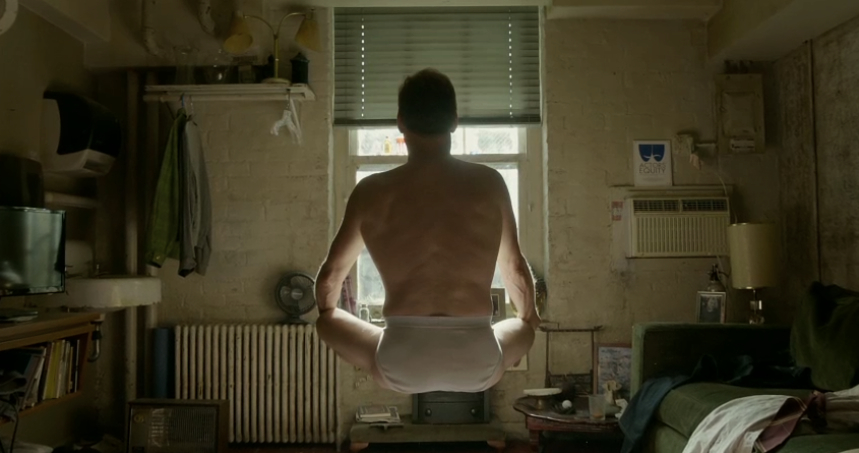
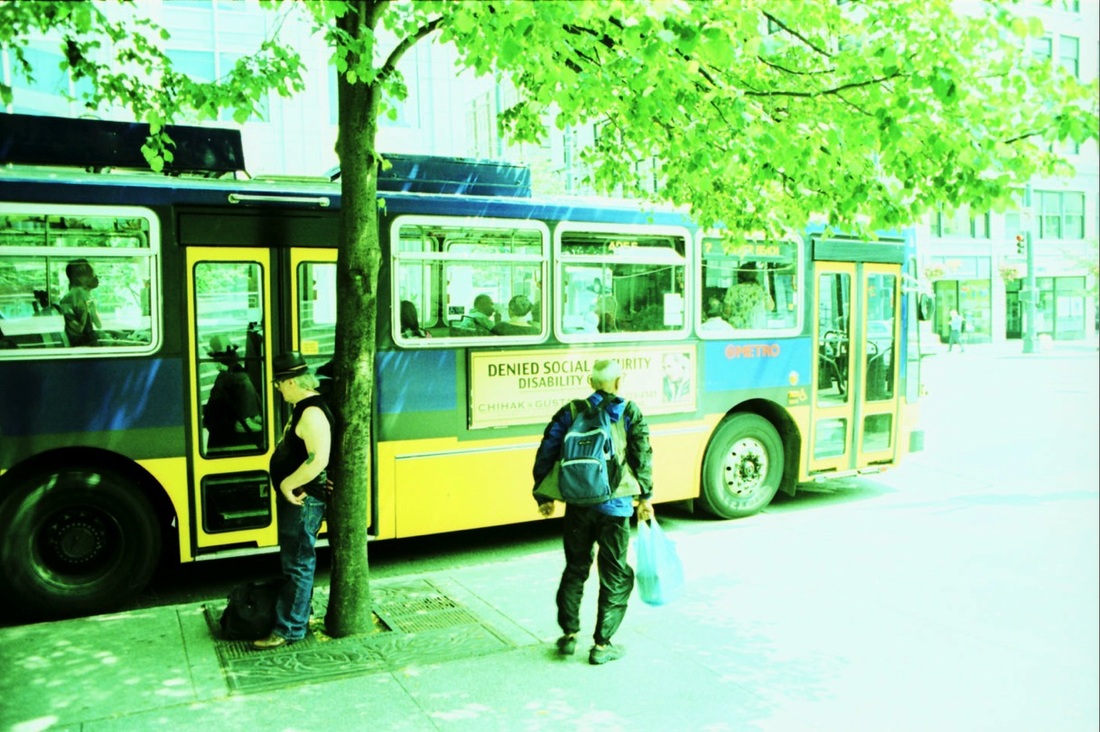
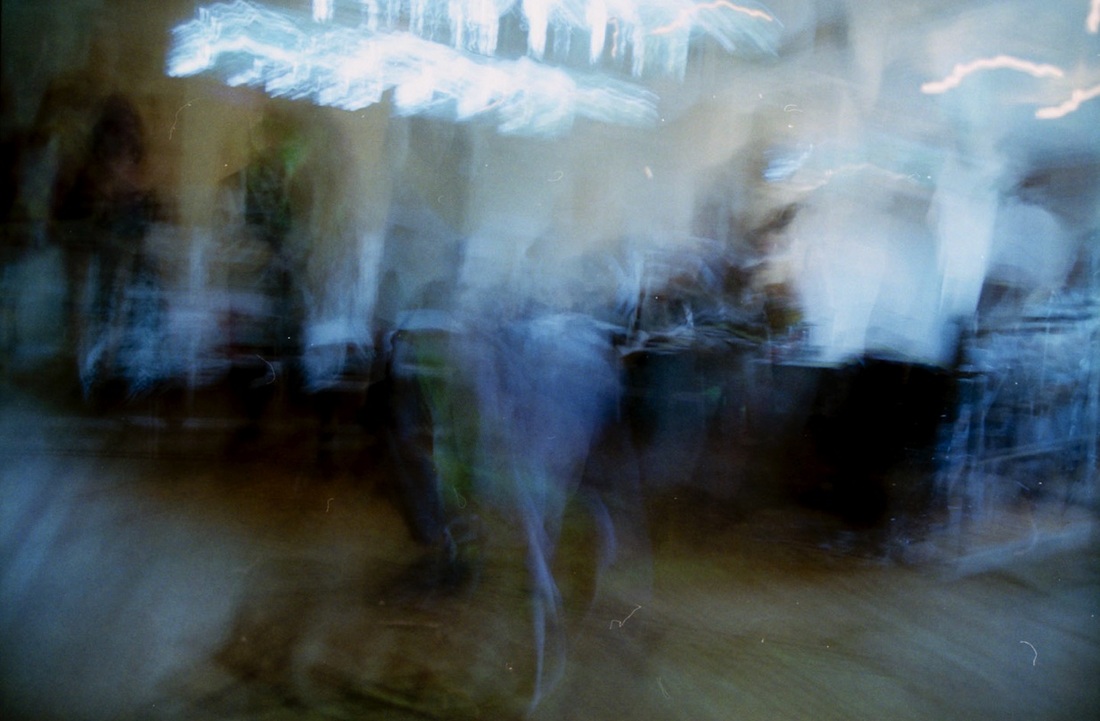
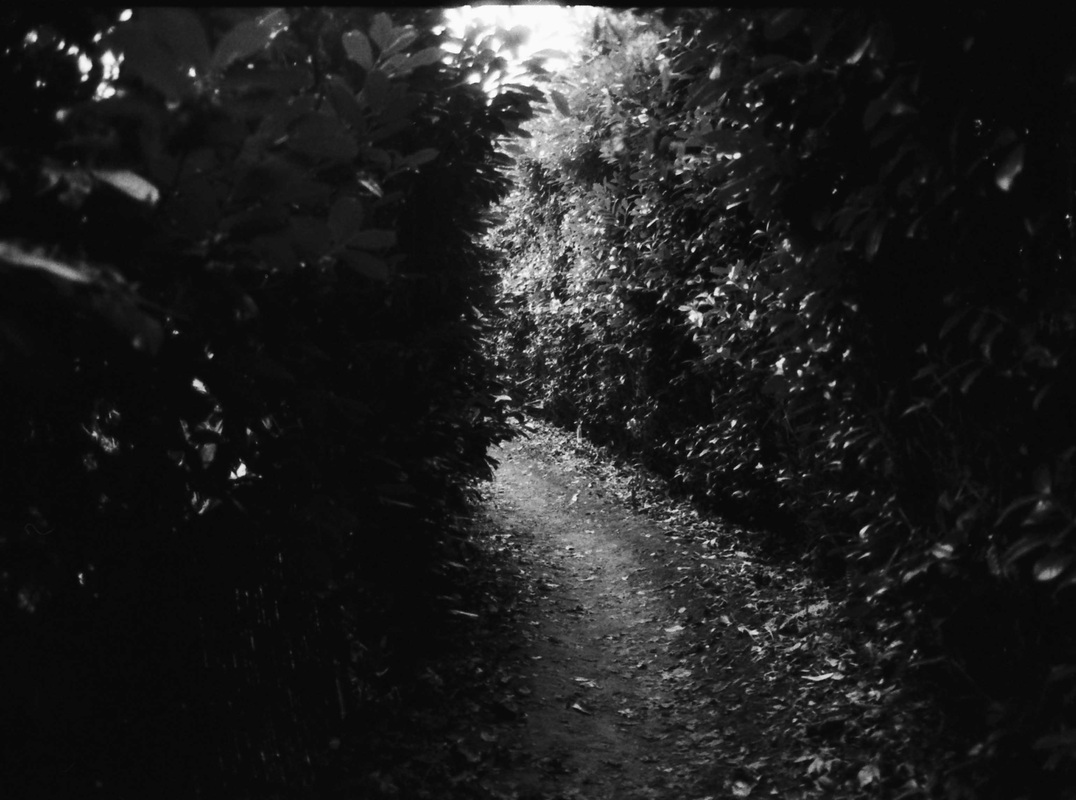
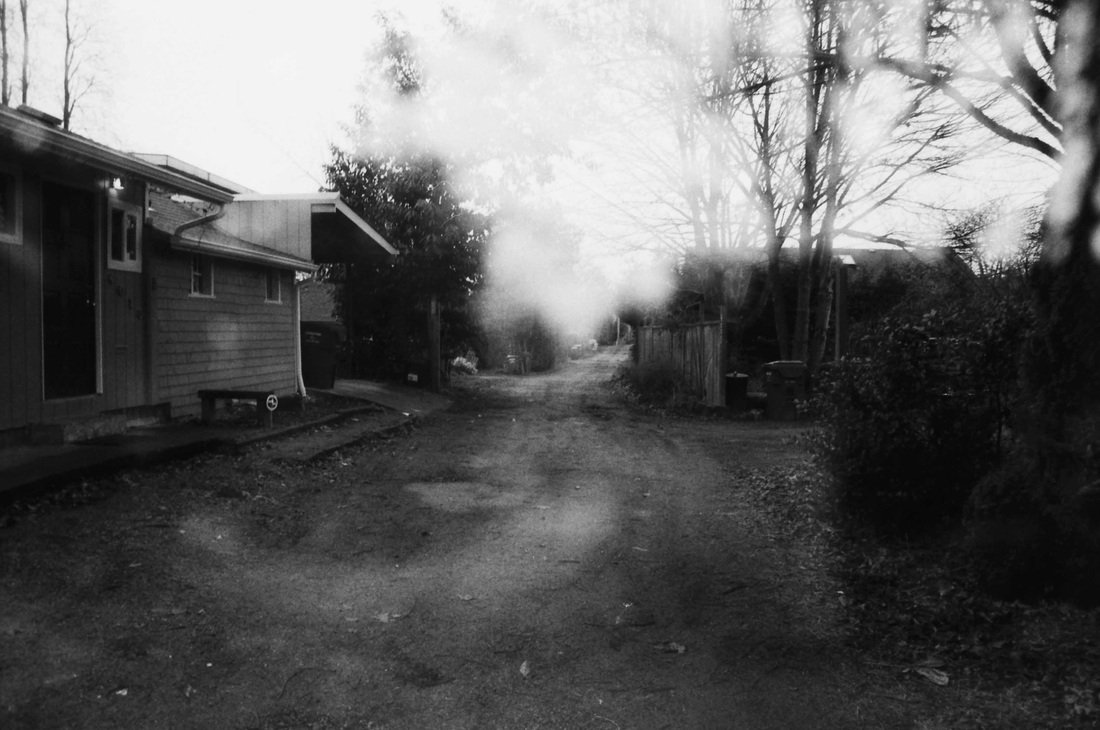
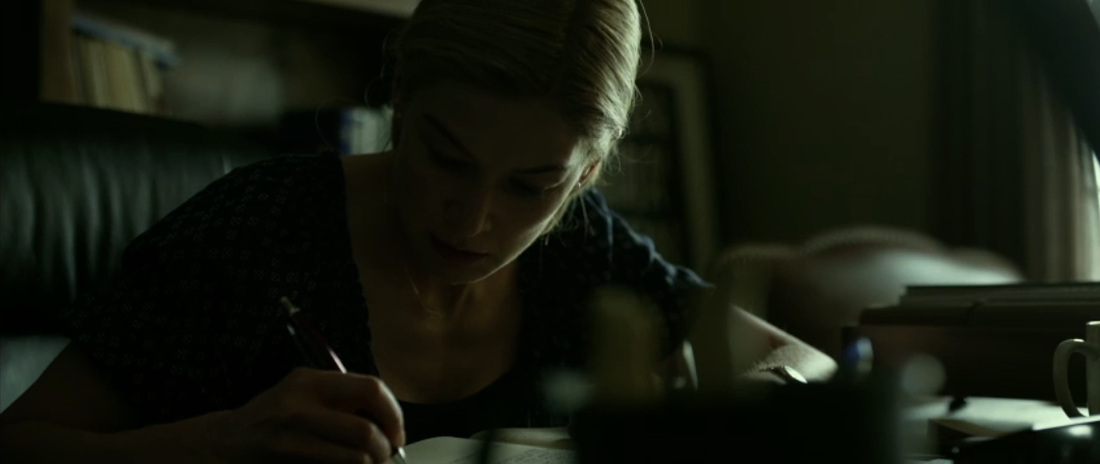
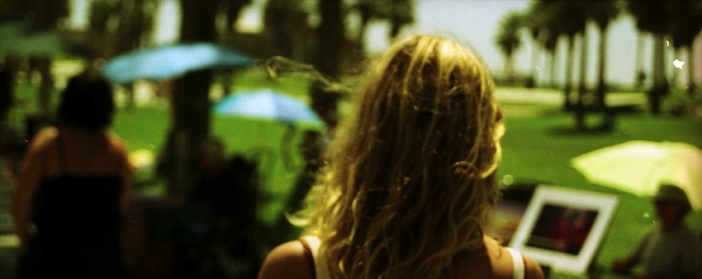
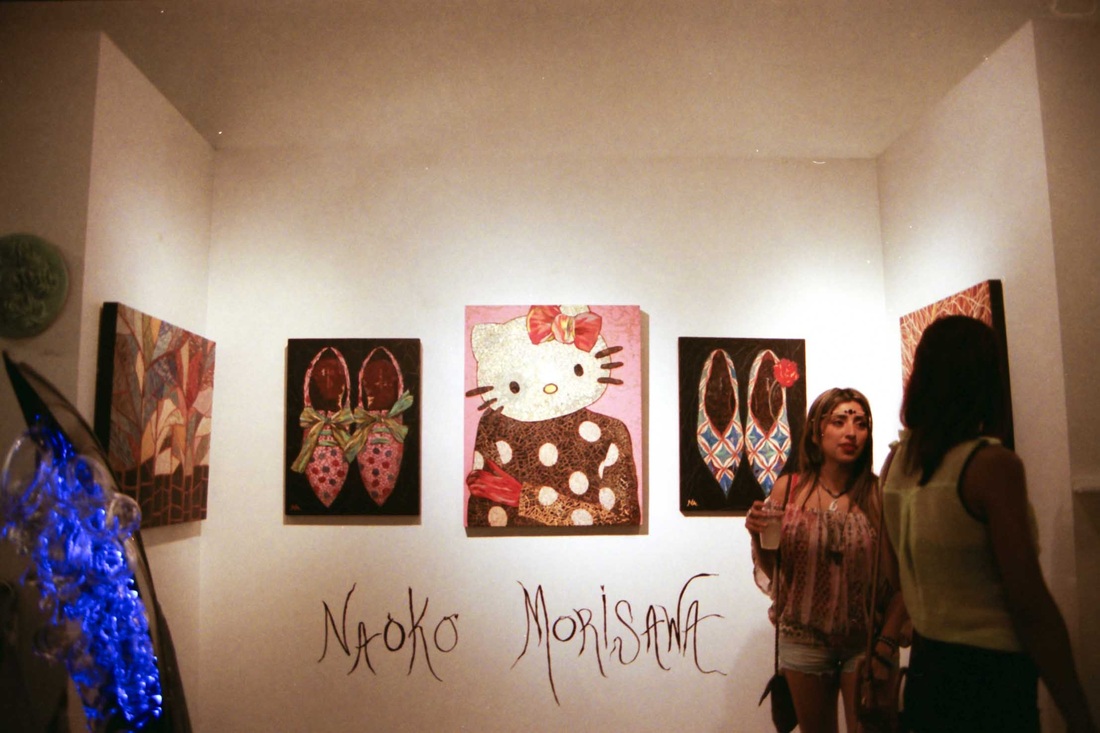
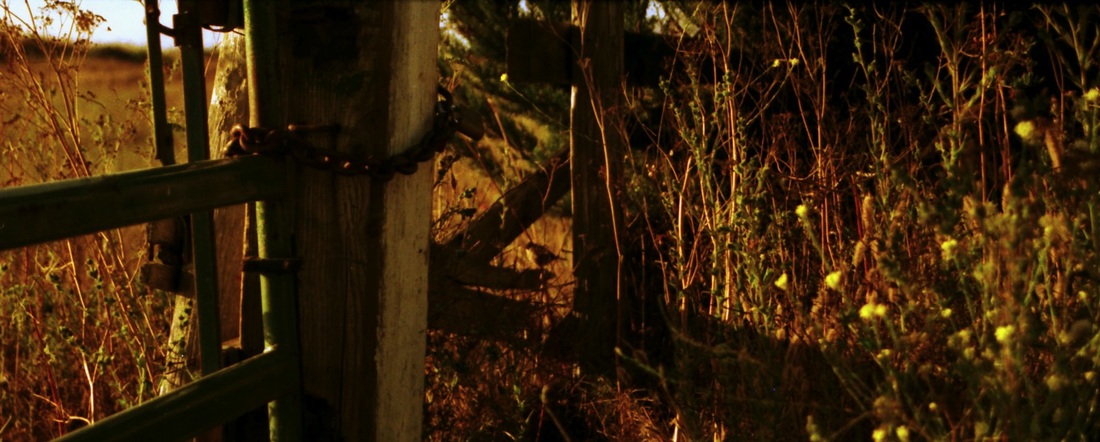
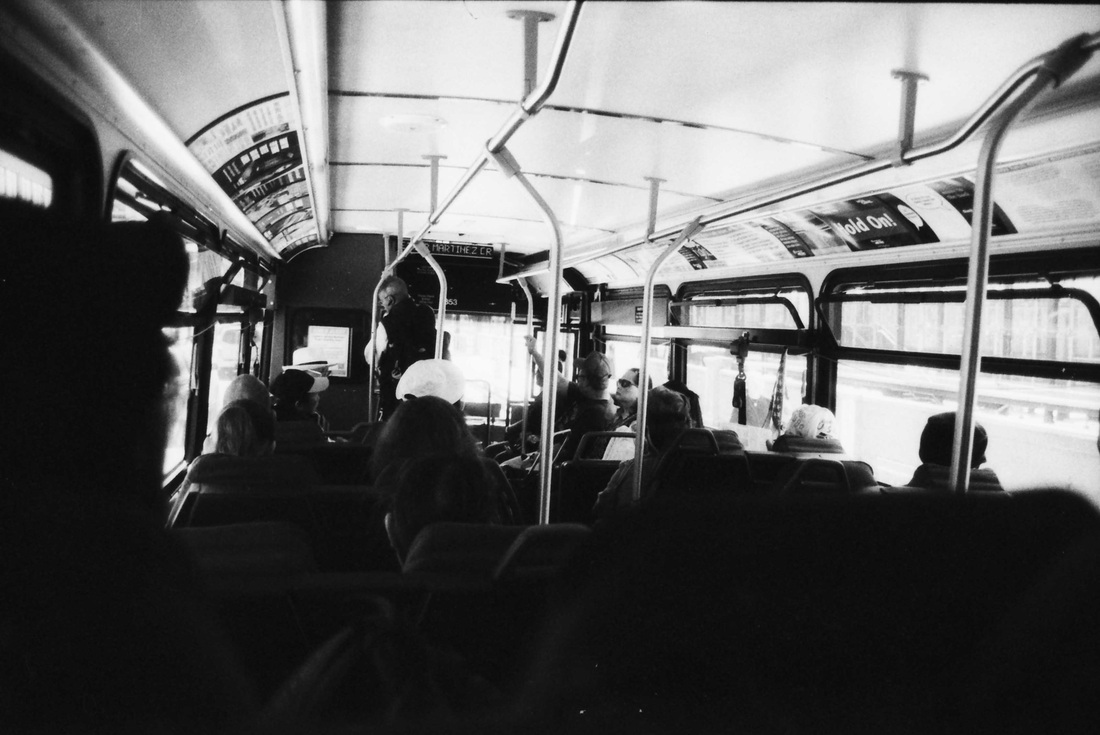
 RSS Feed
RSS Feed
